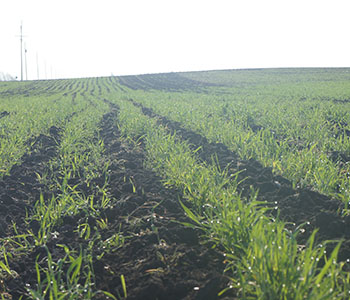A Helpful Guide to Carbon Credits
Jan 16, 2023

Landon Van Dyke
Sales Agronomist
First, it’s important to understand what a carbon credit is and how it is made. Simply put, a carbon credit is when you keep more carbon in the soil than you put into the air. You accomplish this by reducing the amount or severity
of your operation’s tillage and/or by planting cover crops. Why are carbon credits becoming popular? People and companies want to reduce their carbon footprint, so they either make lifestyle changes or purchase carbon credits from a seller (a farmer).
Second, you must establish the relationship between the buyer and seller. Is the buyer a reseller, a middleman or a marketplace? The differences between these types of buyers will show up in how the contract is written and the requirements for the farmer. Other important aspects to understand include:
- Selling a carbon credit vs. selling carbon credit rights
- Tail commitments
- Clawback rules
- Verification costs
All these factors relate to each other in unique ways based on the individual program. As an example, let’s look at the difference between selling a carbon credit and carbon credit rights. Carbon credits apply to a specific period of time, while carbon credit rights apply for a period of time into the future (like mineral rights for land).
These terms and questions—as well as other factors not listed—need to be considered when evaluating which carbon program is best for your operation. But don’t sweat the complexity! Key Cooperative is at your side and will navigate carbon credits with you. As the new year begins, start the conversation with your Key Agronomist to prepare for your operation’s future.